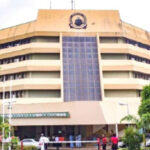My thoughts around the conceptual update of the Growth Enhancement Support Scheme (GES) are aimed at not only making the scheme more in tune with the realities of Nigerian agriculture, beyond seeds subsidies, but also positioning it to improve as it is exposed to certain stress and volatilities.
Agricultural extension
First of all, starting with the easy part being the e-wallet system itself. We must understand that one of the biggest advantages of using mobile phones to reach farmers is the incredible opportunity to offer and capture personalised information to individual owners of mobile phones. There is a great opportunity for mobile extension to play a huge role in ensuring that input is applied correctly, and good agricultural practices are also practiced by farmers. This of course also presents an opportunity to understand problems down to the most minute of their details and how they affect the farmer and the produce. Therefore, I feel the offering should go beyond the administration of subsidy and ride on the infrastructure to offer mobile agricultural extension.
Certified seeds and timing
The demand pattern for seeds has seasonal dynamics. Foundation seeds planted and bred in a previous year are treated and processed into certified seed in succeeding year then sold. Sales are often done as processing is taking place because farmers mostly only buy when they need to start planting. Usually the most active sales period is between April and late June which is usually the early part of the wet planting season for maize and rice. However, vegetables seeds sales are mostly in August or September. Beyond the wet season, many farmers also engage in dry season farming. It can be said that about 70 per cent of the seeds used by farmers during the dry season farming are just taken out of the produce of what was cultivated during the wet season. Only about 30 per cent of the seeds used during the dry season are certified seeds from seed companies.
The GES must not only ensure a flowing supply of certified seeds but also their reaching farmers at precisely the right time whether in the dry or wet season. This necessarily means ramping up production and adequate storage of certified seeds by producers and agro dealers with good proximity to farmers.
Furthermore, it is essential for us to eliminate factors affecting the development of a seed supply sector. Whether from a business or policy point of view, linkages in seed supply systems must be considered when defining appropriate seed strategies, from the market to the socio-economic circumstances of the farmers. It is equally important to be aware of potential negative repercussions to the seed supply sector if changes in other policies affect services offered to farmers, which is so prone to happening in the Nigerian agricultural sector. This brings me to the next point.
Market-driven systems
Access to quality input and access to finance are not the absolute final answers in agricultural transformation as long as they are not happening organically as part of a market-driven system. In finance, we see in many countries like Nigeria, that the agriculture sector is still considered largely too high-risk for commercial lenders, meaning that farmers are unable to access finance for inputs or to manage cash flow, and as a result, often sell to the nearest available buyer. Many solutions have been sought to address the need for transformation in the agriculture sector, either through piecemeal approaches to specific issues, or through far-reaching, sector-wide programmes. Public-private partnerships and multi-stakeholder platforms have received rightful attention as key to the development of meaningful solutions. Many of the varied approaches that have been explored in recent years have focused on increasing productivity and supply.
In redesigning GES, we must ensure that there is a focus on demand before supply. Initiatives like the Presidential Fertilizer Initiative should have been more demand-based rather than heavily focused on supply and hence the mixed results in actual impact on the farmer despite achieving massive levels of production. All other programmes and interventions too must take a market driven, demand-based approach. This is necessary for the Federal Ministry of Agriculture and Rural Development and its schemes to eliminate corruption, strengthen farmers and depart from subsidies as we aspire to support open markets where demand dictates investments and not otherwise.
Agricultural insurance
As I have written several times, whereas the COVID-19 pandemic is completely unprecedented for Nigeria, we were quite aware that we would record high rates of flooding in 2020 not only in Yobe or Jigawa but about 26 other states in Nigeria. Today, scores have lost their lives, with many missing or displaced and the true impacts of that year’s catastrophic floods may never be completely known. No thanks to our abysmal culture of data collection and utilisation which is not restricted to the agricultural sector. For a country that claims special attention to agriculture, this neglect is reckless. Nevertheless, the GES must include a strong insurance component that covers the farm input of farmers against bad weather and other disasters that may affect their production. This is also relatively easy to add since the scheme will operate on a structure of input companies, financial institutions, farmer groups and the ministry of agriculture’s resources.
Conclusively, I believe a GES redesigned along the capacities and mandates of the Federal Ministry of Agriculture and Rural Development, the National Agricultural Seeds Council (NASC), the National Agricultural Extension and Research Liaison Services (NAERLS) and the Nigerian Agricultural Insurance Corporation (NAIC) with appropriate private sector involvement will be better than dusting off an old solution that may or may not yield the results it was originally designed to deliver.
 Join Daily Trust WhatsApp Community For Quick Access To News and Happenings Around You.
Join Daily Trust WhatsApp Community For Quick Access To News and Happenings Around You.


